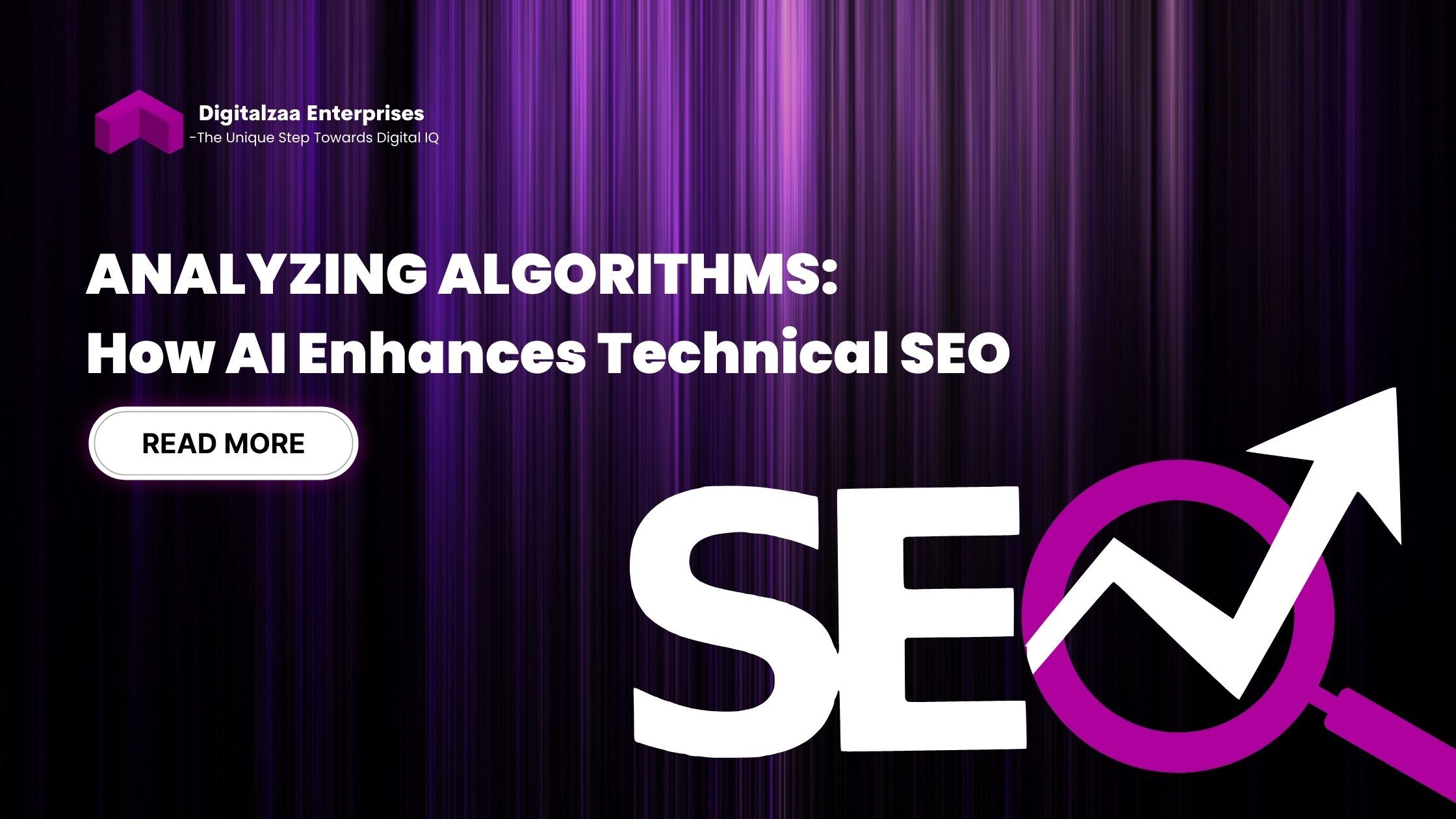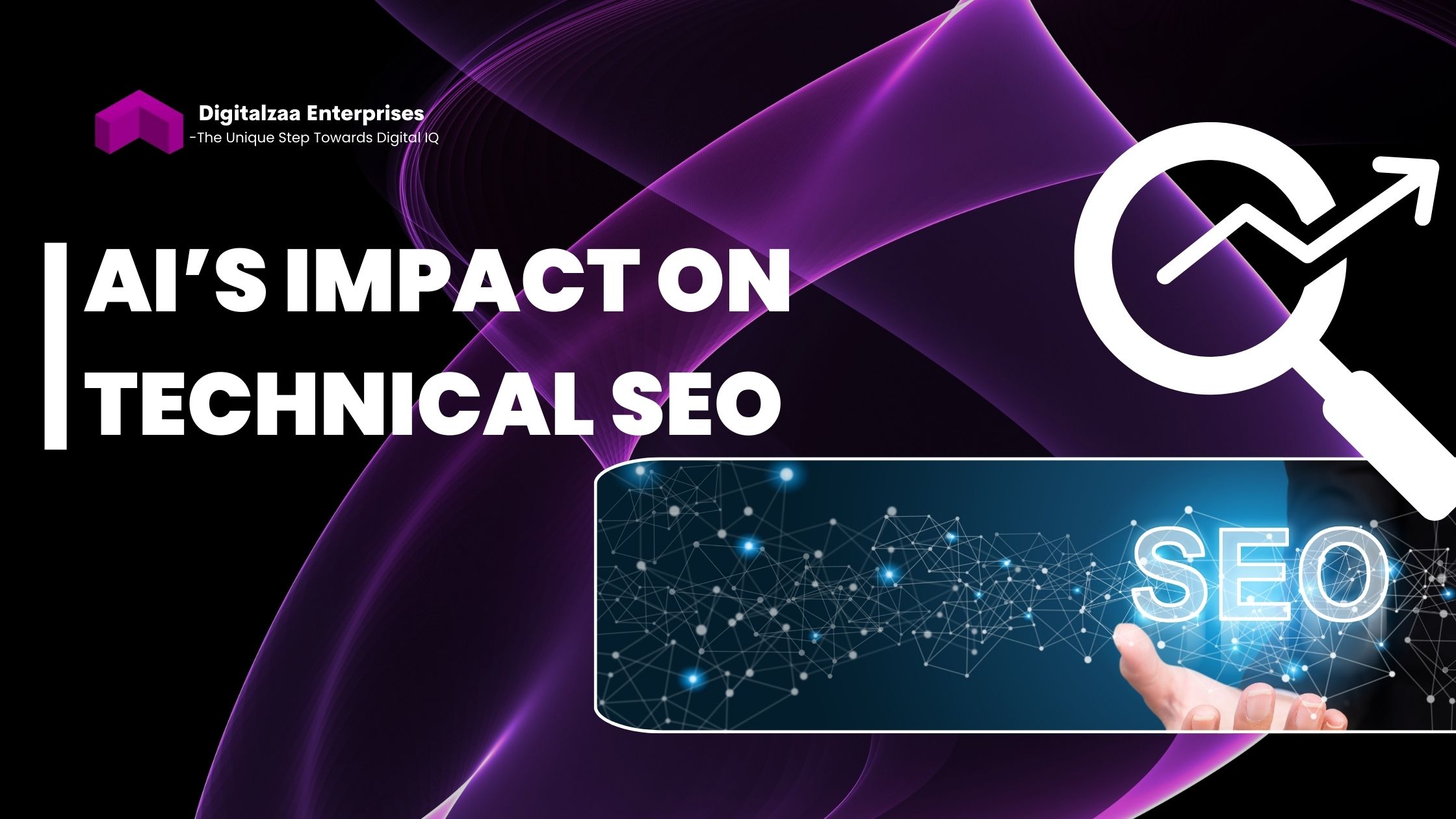Analyzing Algorithms: How AI Enhances Technical SEO.

Search engine optimization (SEO) has always revolved around one essential principle—understanding how search engines process, evaluate, and rank content. At the heart of this lies algorithms, which dictate what appears on the first page of search results and what gets buried beneath countless competitors. Over the years, these algorithms have become increasingly sophisticated, moving far beyond simple keyword matching to include natural language processing, contextual understanding, and behavioral analysis.
In this constantly evolving environment, technical SEO plays a crucial role. Unlike on-page or off-page SEO, technical SEO focuses on the behind-the-scenes elements—site architecture, indexing, crawlability, page speed, structured data, and overall website performance. As search engines evolve, the complexity of optimizing these factors also increases. This is where artificial intelligence (AI) is making a transformative impact.
AI not only helps us understand search engine algorithms but also enhances technical SEO strategies through automation, predictive analysis, and deeper insights into user intent. In this blog, we will analyze how algorithms and AI intersect in SEO, explore AI-powered tools for technical optimization, and discuss why businesses that embrace AI gain a strong competitive edge.
The Algorithmic Backbone of SEO
Before exploring AI’s role, it’s essential to understand why algorithms matter so much in SEO. Every search engine—whether Google, Bing, or others—uses algorithms to process vast amounts of data and deliver the most relevant results to users. These algorithms consider hundreds of ranking factors, including:
- Site speed and performance metrics.
- Mobile-friendliness and responsive design.
- Crawlability and proper indexing of pages.
- Content quality, keyword usage, and semantic relevance.
- Backlink authority and trustworthiness of sources.
- User experience (UX) signals such as dwell time and bounce rate.
Search engine algorithms are updated constantly. For example, Google rolls out broad core updates several times a year, which can dramatically change how websites rank. This makes it difficult for SEO professionals to rely on static strategies. Instead, they must adapt quickly to changing conditions.
Here is where AI provides a bridge—helping us analyze patterns in algorithm updates and predict what might come next.
AI’s Impact on Technical SEO

AI brings automation, scalability, and intelligence into SEO processes. Instead of relying solely on manual audits and guesswork, AI-driven tools can scan vast datasets, identify weaknesses, and recommend optimizations aligned with search engine priorities. Let’s look at how AI enhances different aspects of technical SEO.
1. Crawlability and Indexing Optimization
Search engines rely on bots (crawlers) to discover and index web pages. If crawlers face barriers such as broken links, improper redirects, or duplicate content, your pages may not be indexed correctly.
AI-powered tools like Screaming Frog, DeepCrawl, or Botify use machine learning to detect crawling errors faster. They don’t just highlight problems—they predict the impact of those issues on rankings. AI can also simulate how a search engine would crawl a site, giving webmasters insights into hidden issues before they affect SEO performance.
2. Site Speed and Performance Enhancements
Page speed is a confirmed ranking factor, and it directly influences user experience. AI helps analyze real-time speed performance under different conditions, identifying what slows down a website. For example:
- AI can test various caching strategies to see which delivers optimal results.
- It can analyze render-blocking resources and suggest better loading sequences.
- Predictive models can determine how future changes in content or design will impact load time.
Tools like Google Lighthouse, Cloudflare’s AI-based optimizers, and NitroPack rely on AI-driven automation to compress files, optimize images, and enhance Core Web Vitals performance.
3. Structured Data and Schema Implementation
Structured data helps search engines understand the context of content, enabling rich results like FAQs, ratings, or product listings. However, implementing schema markup correctly can be tricky.
AI tools now assist in automatically generating structured data based on content type. For instance, an AI-powered CMS can detect whether a page contains recipes, reviews, or events and then apply schema without manual coding. This not only improves visibility in search results but also reduces errors in markup implementation.
4. Log File Analysis
Server log files hold critical information about how search engine bots crawl a site. Traditionally, analyzing these files required technical expertise and manual filtering.
AI simplifies this by detecting crawl frequency, identifying under-crawled pages, and predicting which content is likely to be ignored by search engines. This helps SEO teams prioritize high-value pages for better indexing.
5. Duplicate Content Detection
Duplicate or thin content is a common SEO issue. AI-based plagiarism and similarity checkers can identify duplicate clusters across large websites. Unlike traditional tools, AI goes beyond exact matches to detect semantic similarity, ensuring unique content across all indexed pages.
6. Predictive Analysis of Algorithm Updates
One of the biggest challenges in SEO is responding to algorithm updates. While no one outside Google knows the exact formula, AI can analyze past updates and their effects to predict future patterns.
For instance, machine learning models may find correlations between updates and specific ranking factors like content depth, page load speed, or mobile UX. Businesses can then proactively adjust their strategies rather than waiting to recover from ranking drops.
AI-Powered Tools in Technical SEO
Several AI-powered tools are revolutionizing technical SEO. Let’s highlight a few:
- Surfer SEO & Clearscope – Help analyze keyword relevance and content structure with AI-driven insights.
- MarketMuse – Uses natural language processing to evaluate content depth and suggest improvements.
- Screaming Frog + AI integrations – Detect technical issues in crawling, redirects, and XML sitemaps.
- DeepCrawl – Provides AI-driven website health monitoring with predictive recommendations.
- Google Search Console with AI analytics – Offers better visibility into indexing and performance trends.
- ChatGPT (and similar AI models) – Assists in generating optimized meta descriptions, schema code, and technical documentation.
By leveraging these tools, businesses can streamline their workflows and focus on strategic improvements instead of repetitive technical checks.
Benefits of Using AI for Technical SEO
Embracing AI-driven technical SEO brings numerous advantages:
- Efficiency and Scalability – AI can process vast amounts of data in minutes, allowing SEO teams to focus on strategy rather than manual audits.
- Proactive Optimization – Predictive analytics enable businesses to prepare for future algorithm shifts instead of reacting after rankings drop.
- Deeper Insights – AI uncovers patterns that human analysis might overlook, leading to smarter decisions.
- Better User Experience – By improving performance, crawlability, and structured data, AI ensures websites are both user-friendly and search-engine friendly.
- Continuous Monitoring – Unlike traditional audits performed periodically, AI-driven systems monitor websites in real-time and alert teams to potential issues immediately.
Real-World Applications
To understand how AI is applied in technical SEO, let’s consider a few scenarios:
- E-commerce websites often face duplicate content challenges due to product variations. AI-powered SEO tools can automatically detect and implement canonical tags to resolve duplication issues.
- News portals struggle with crawl budget allocation, as search engines may not index all articles. AI-based log file analysis ensures that the most relevant and high-traffic stories get prioritized for indexing.
- Global websites with multilingual content benefit from AI’s ability to detect hreflang errors and suggest proper implementation for international SEO.
- Mobile-first businesses can use AI to simulate how search engines view their mobile pages, ensuring responsive design and Core Web Vitals are fully optimized.
Future of AI in Technical SEO

AI is not just a supporting tool—it is becoming central to the future of SEO. We can expect:
- AI-Generated SEO Roadmaps – Platforms that analyze entire websites and generate step-by-step technical SEO strategies tailored to business goals.
- Voice and Multimodal Optimization – With the rise of voice search and AI-driven assistants, technical SEO will evolve to optimize for conversational queries and multimodal results.
- Autonomous SEO Bots – Instead of only identifying problems, AI bots will automatically implement fixes such as redirect rules, schema updates, and even internal linking optimizations.
- Deeper Algorithm Analysis – As AI models get more advanced, they may simulate how Google’s algorithms evaluate a page, giving SEO teams near real-time previews of ranking potential.
Challenges and Limitations
Despite its benefits, AI in technical SEO is not without challenges:
- Dependence on Data Quality – AI is only as good as the data it receives. Incomplete or inaccurate datasets can mislead optimizations.
- Algorithm Black Boxes – Even with AI, the exact inner workings of search engine algorithms remain unknown. Predictions are probabilistic, not guaranteed.
- Over-Automation Risks – Blindly trusting AI without human oversight can lead to technical misconfigurations.
- Cost and Accessibility – Some advanced AI SEO tools can be expensive, making them less accessible to small businesses.
The key lies in balancing AI-driven automation with human expertise, ensuring accuracy while maintaining strategic control.
Conclusion
The evolution of search engine algorithms has made technical SEO more complex than ever before. Factors like crawlability, indexing, speed, and structured data continue to play vital roles in determining a website’s visibility. However, the sheer scale and dynamic nature of SEO make it impossible to rely solely on manual processes.
Artificial intelligence is revolutionizing this space. By enhancing technical audits, predicting algorithm updates, and automating optimizations, AI allows businesses to stay ahead of competitors. From real-time log analysis to schema automation and predictive insights, AI empowers SEO professionals to work smarter, not harder.
As search engines continue to evolve, one fact is clear—AI is no longer optional in SEO. It is the future of technical optimization. Businesses that adopt AI today will not only survive but thrive in the ever-changing digital landscape.


